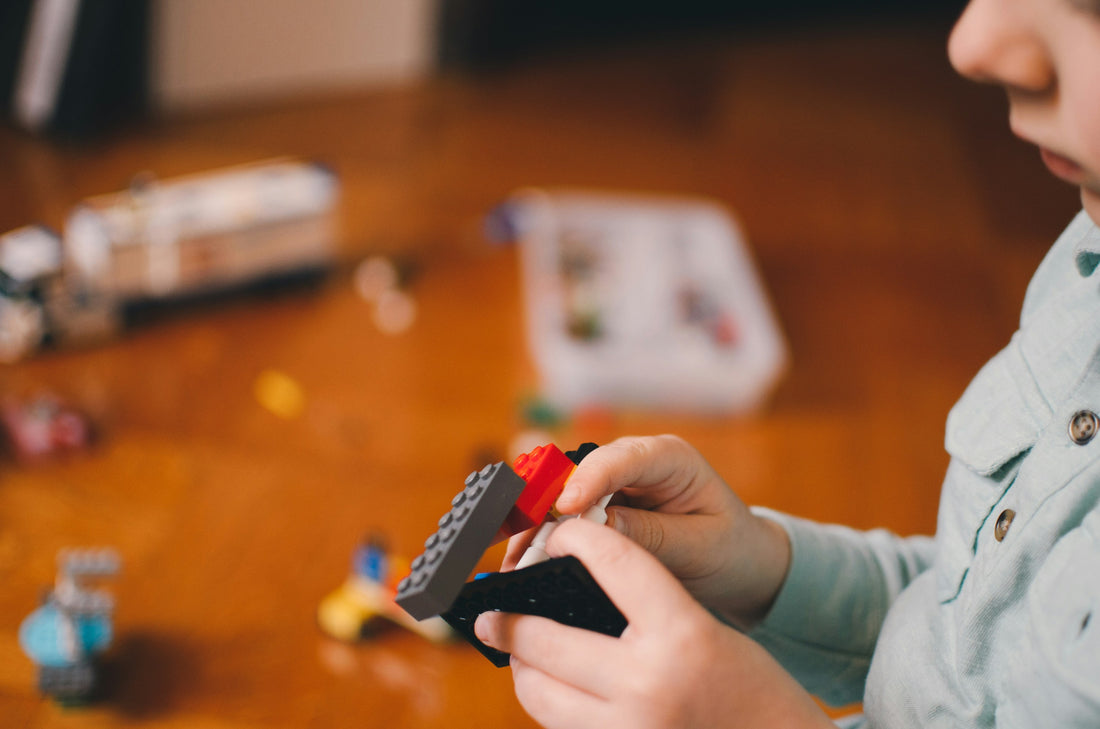
The Five Main Areas of Early Childhood Development
Share
Early childhood is a vibrant and dynamic period where children grow and learn at an astonishing pace. Understanding the five main areas of early childhood development can provide parents and caregivers with valuable insights to support their child's journey. These areas—gross motor skills, fine motor skills, speech and language, cognitive and intellectual skills, and social and emotional skills—interact and overlap, contributing to a child’s overall development. Let’s dive into each area to see what they encompass and how we can encourage growth.
1. Gross Motor Skills
Gross motor skills involve large muscle movements that enable children to perform big physical tasks. These skills are essential for overall mobility and coordination. Activities like crawling, jumping, running, and climbing fall under this category.
Key Milestones:
- Infants: Rolling over, sitting up, and crawling.
- Toddlers: Walking, running, and climbing stairs.
- Preschoolers: Jumping with both feet, balancing on one foot, and riding a tricycle.
Encouragement Tips:
To promote gross motor skills, provide ample opportunities for active play. Outdoor activities, playground visits, and simple games like tag or hopscotch can help strengthen these skills while keeping your child engaged and physically fit.
2. Fine Motor Skills
Fine motor skills involve smaller movements, particularly those using the hands and fingers. These skills are crucial for tasks like writing, drawing, and manipulating small objects.
Key Milestones:
- Infants: Grasping objects and bringing them to their mouths.
- Toddlers: Stacking blocks and using utensils.
- Preschoolers: Drawing shapes, cutting with scissors, and writing simple letters.
Encouragement Tips:
Encourage fine motor development through activities like arts and crafts, puzzles, and games that require pinching or grasping. Simple tasks like buttoning shirts or zipping jackets can also help enhance these skills.
3. Speech and Language
Speech and language development is vital for communication and expression. This area includes not just talking but also listening and understanding language.
Key Milestones:
- Infants: Cooing and babbling, responding to sounds.
- Toddlers: Using simple words and short phrases.
- Preschoolers: Expanding vocabulary, forming sentences, and beginning to understand the concept of storytelling.
Encouragement Tips:
To foster speech and language skills, engage in frequent conversations with your child. Reading together, singing songs, and playing word games can enhance vocabulary and comprehension. Encourage them to express their thoughts and feelings, which will boost their confidence in communication.
4. Cognitive and Intellectual Skills
Cognitive development involves the mental processes that allow children to think, learn, and problem-solve. This includes skills like counting, identifying shapes, and understanding concepts like size and color.
Key Milestones:
- Infants: Recognizing familiar faces and objects.
- Toddlers: Understanding simple concepts, like "big" and "small."
- Preschoolers: Counting to ten, identifying basic shapes, and solving simple puzzles.
Encouragement Tips:
Support cognitive growth by providing engaging activities that stimulate thinking. Puzzles, matching games, and simple counting exercises can promote cognitive skills. Encouraging curiosity and exploration helps children learn about the world around them.
5. Social and Emotional Skills
Social and emotional development is about how children understand themselves and relate to others. This area is crucial for building relationships and navigating social situations.
Key Milestones:
- Infants: Forming attachments and responding to caregivers' emotions.
- Toddlers: Playing alongside peers (parallel play) and expressing a range of emotions.
- Preschoolers: Engaging in cooperative play, sharing, and taking turns.
Encouragement Tips:
Promote social and emotional skills by facilitating playdates and group activities. Teach emotional vocabulary to help your child express their feelings, and model positive interactions. Encouraging empathy through sharing and discussing emotions can also nurture these important skills.
Conclusion
Understanding the five main areas of early childhood development—gross motor skills, fine motor skills, speech and language, cognitive and intellectual skills, and social and emotional skills—provides a roadmap for parents and caregivers. By creating a nurturing environment and offering activities that target these areas, we can help children build the foundational skills they need for lifelong learning and social interaction. Remember, every child develops at their own pace, so celebrate their unique journey while providing the support they need to thrive!
